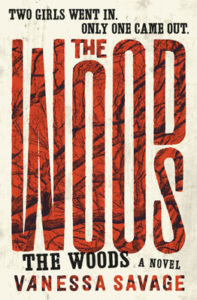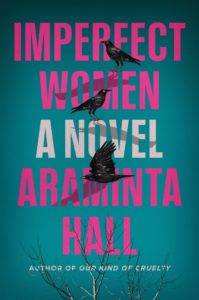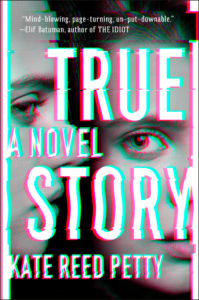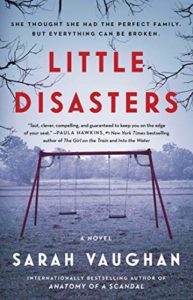Since we are all friends, I have a confession: crime fiction is failing me lately. All books are. Don’t apologize. It’s not the books’ fault. It’s not the authors’ responsibility either: they work so hard to entertain and distract us by creating worlds full of menace and woe. It’s me. I am fidgety and distracted. The world is full of menace and woe. I read bits of this and that, aware that I’m not settling into a book; I can’t get comfortable. As soon as I pick up one thing another bright and shiny book gives me googly eyes, and I switch, and switch, and switch. I wander from room to room then to the backyard or the front porch, dragging multiple books and my tablet with me. If you buy this (and I do), I am suffering from a malaise infecting writers much more pretentious than me.
What was I to do? I owed you a list, it’s our thing. I buckled down and picked the books and read. Despite my lack of focus, each of these books had something that I admired, or was curious about, or otherwise made me think about something other than the real world. I can’t give higher praise than that.
Vanessa Savage, The Woods
(Grand Central)
A decade has passed and Tess remains haunted by her older sister’s death. It was supposedly an accident: even though Tess with her in the woods she cannot remember what happened that night. She has moved and moved on. In London she can almost forget the horrors of her childhood. Her sister is not the only one haunting Tess. There was also the odd family next door, and the two girls who were murdered, crimes that remain unsolved. When Tess’s father summons her home, Tess is determined to recover the memory of what happened to her sister. How much does she want to know?
Julia Heaberlin, We Are All the Same in the Dark
(Ballantine)
Heaberlin is a dependable thriller writer, which sounds boring but it isn’t. In Dark she mines the territory which she knows so well: rural Texas. A girl is found, and it might be a break in the town’s longest lasting and most upsetting cold case. Trumanell Branson disappeared, with only her picture in the town’s Baptist church to remember her. But her brother, Wyatt, formerly the number one suspect, has not given up hope, though he lives a kind of Boo Radley life. Events are set in motion by the town’s youngest cop, Odette Tucker, who can’t help but identify with the lost Trumanell, and will risk her life and career solving the mystery of her disappearance.
Araminta Hall, Imperfect Women
(FSG / MCD)
Hall’s 2018 American debut, A Different Kind of Cruelty, was a standout both for its nuanced unstable male narrator and some flat-out great sentences. Her follow-up, Imperfect Women, is equally impressive. Hall takes on a complex structure, using three point-of-view characters to talk about the complexities of women’s lives: family, friendship, and feelings all get the treatment under Hall’s steady, steely gaze. As my colleague Molly Odintz suggested, Hall is perfect for fans of Elena Ferrante who wish her books had a body count.
Kate Reed Petty, True Story
(Viking)
Petty’s debut is an impressive literary crime novel along the lines of Megan Abbott and Laura Lippman with great pacing and formal experimentation which sets it apart from most crime fiction. Petty constructs a dazzling puzzle featuring Alice Lovett, a ghostwriter who is haunted by an incident 15 years earlier when she was coming home after a high school party. But she is not the only one suffering: her childhood friend, now a successful filmmaker; Nick, a former lacrosse player (so much is evoked by that phrase) with a drinking problem; and Richard, who runs a reputation scrubbing company, are all still fixated on that night. True Story has much to recommend it: Petty’s ambition leads her to into thorny topics. Sexual assault, rape culture, toxic masculinity, a skepticism about memory and truth—the greatest hits of misogyny are scrutinized and documented with a heaping cup of existential philosophy. In screenplays, in emails, in drafts of Alice’s college admissions essay, Petty presents us with individual versions of the past, putting the reader in the position of figuring out which story and whose story is true.
Sarah Vaughan, Little Disasters
(Atria)
Vaughan’s compelling story of motherhood and secrets dissects the friendship of beatific stay-at-home mom Jess and Liz, an emergency room pediatrician who treats one of Jess’s kids, a fussy infant named Betsey. When Liz discovers injuries on Betsey Jess can’t explain, she is forced into murky ethical territory. Vaughn plays the reader expertly, and Little Disasters is a thoughtful and suspenseful exegesis on loyalty and its limits.






















